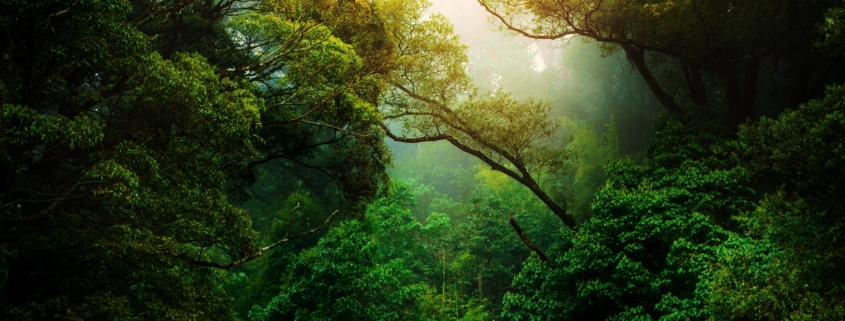Following the „Green Computing“ trend topics, „Green Internet” have become a new area of interest. Christian Kroll was one of the early visionaries of this concept and developed the search engine „Forestle“ in August 2008. Forestle donates almost 90% of their advertising revenue, which is generated by clicking sponsored links, to „Adopt an Acre“. This project gains the protection of the rain forest. On average, every query protects 0,1 square meters of rain forest. The Forestle Search, once cooperating with Google, is now working with Yahoo.
In December 2009, the successor of Forestle called Ecosia went live. Ecosia is cooperating with Yahoo, Bing and the WWF (World Wide Fund for Nature), and is also developed to protect the rain forest. Ecosia donates approximately 80% of their total revenue to the WWF. Every Search protects 2 square meters of rain forest in average. The goal of Ecosia is to protect an area as big as Switzerland.
Experts assume that every query with a common search engine emits 7 grams of CO2. But not Ecosia. All servers are operating with green electricity. Forestle has a slightly different concept: it measures and captures the CO2-emissions of servers, network infrastructures and personal computers produced by using the search engine and balances this emissions with the purchase of certificates for renewable energies.
Znout is the third search engine by Christian Kroll and works with the same principle: The purchase of certificates balances CO2 emissions.
What a nice idea. Unfortunately, the question is if such individual concepts can find enough followers and users. Google is still No. 1 among the search engines with a revenues of 24 billion US-Dollars in 2009. Experts estimate that 95% of the total revenue is generated by advertising. Wouldn’t it be great if the smaller green search projects would inspire Google to donate a substantial proportion of their advertising revenue to protect the rain forest or support other green projects?
Stefanie Nunberger

